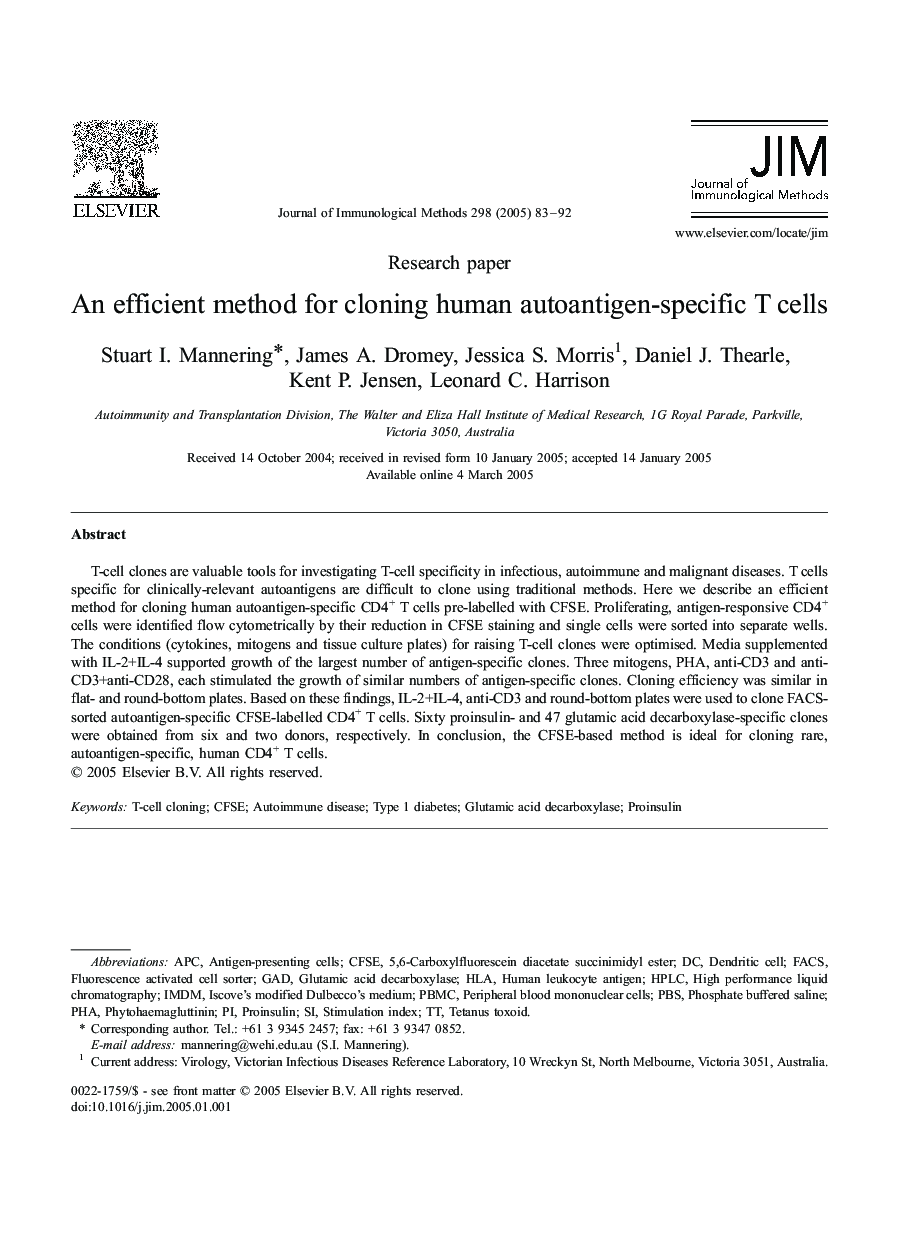| Article ID | Journal | Published Year | Pages | File Type |
|---|---|---|---|---|
| 9902353 | Journal of Immunological Methods | 2005 | 10 Pages |
Abstract
T-cell clones are valuable tools for investigating T-cell specificity in infectious, autoimmune and malignant diseases. T cells specific for clinically-relevant autoantigens are difficult to clone using traditional methods. Here we describe an efficient method for cloning human autoantigen-specific CD4+ T cells pre-labelled with CFSE. Proliferating, antigen-responsive CD4+ cells were identified flow cytometrically by their reduction in CFSE staining and single cells were sorted into separate wells. The conditions (cytokines, mitogens and tissue culture plates) for raising T-cell clones were optimised. Media supplemented with IL-2+IL-4 supported growth of the largest number of antigen-specific clones. Three mitogens, PHA, anti-CD3 and anti-CD3+anti-CD28, each stimulated the growth of similar numbers of antigen-specific clones. Cloning efficiency was similar in flat- and round-bottom plates. Based on these findings, IL-2+IL-4, anti-CD3 and round-bottom plates were used to clone FACS-sorted autoantigen-specific CFSE-labelled CD4+ T cells. Sixty proinsulin- and 47 glutamic acid decarboxylase-specific clones were obtained from six and two donors, respectively. In conclusion, the CFSE-based method is ideal for cloning rare, autoantigen-specific, human CD4+ T cells.
Keywords
IMDMPBSCFSEFACSAPCPBMCPHAGADglutamic acid decarboxylaseIscove's modified Dulbecco's mediumHuman leukocyte antigenantigen-presenting cellsHLAAutoimmune diseasetetanus toxoidType 1 diabetesDendritic cellperipheral blood mononuclear cellsstimulation indexPhosphate buffered salinefluorescence activated cell sorterProinsulinhigh performance liquid chromatographyHPLC
Related Topics
Life Sciences
Biochemistry, Genetics and Molecular Biology
Biotechnology
Authors
Stuart I. Mannering, James A. Dromey, Jessica S. Morris, Daniel J. Thearle, Kent P. Jensen, Leonard C. Harrison,
